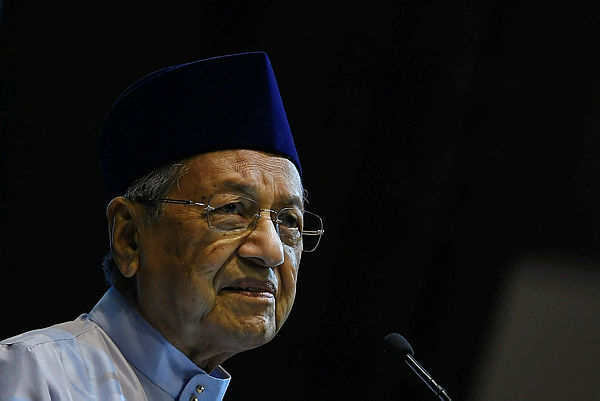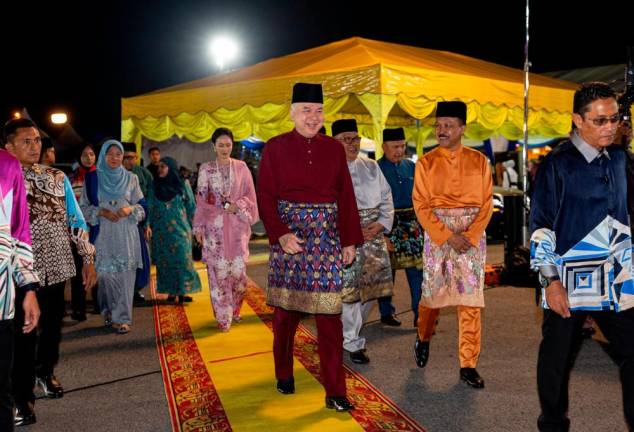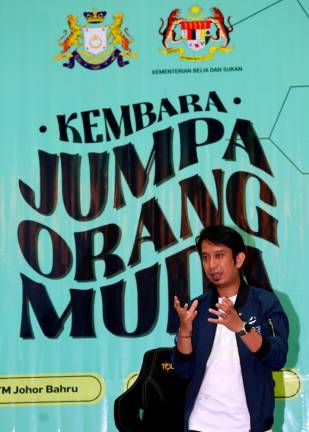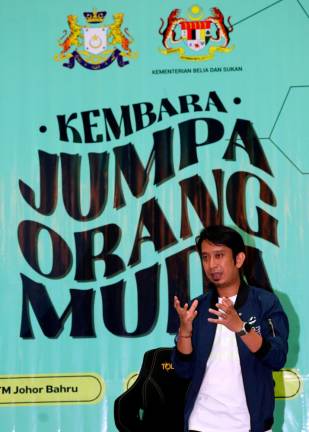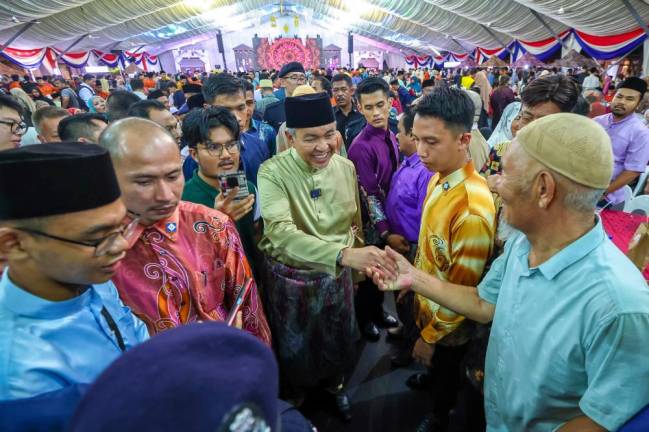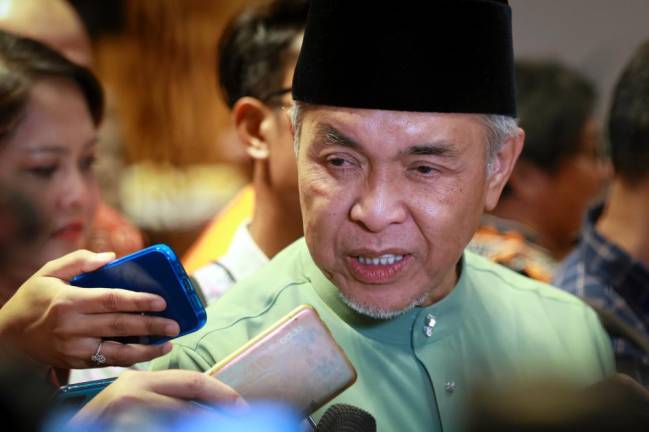PETALING JAYA: Malays must be prepared to put in the effort if they want an equitable share of the nation’s wealth under the newly-launched Shared Prosperity Vision 2030 (SPV2030).
“Shared prosperity means everybody will have a share, but if the Malays don’t do something, they won’t get their share,” Prime Minister Tun Dr Mahathir Mohamad told a press conference after attending the Malay Dignity Congress in Shah Alam yesterday.
“The government may give them opportunities, aid and other assistance but if they don’t make use of these ‘gifts’ they will not have their share,” he said in response to a question on how SPV2030 would affect the Malay community given that Barisan Nasional (BN) was using the race card achieve their own vision.
For many Malaysians, the cooperation between Umno and PAS has clearly drawn a line between the Malays and non-Malays.
Although Umno has stressed that the interests of the other races would be protected, many are of the view that even its own partners in BN — MCA and MIC — are already being sidelined.
Public policy analyst Dr Lim Teck Ghee expressed concern that PH seemed to be “backtracking on its promises of a less racially oriented approach” to nation building. He believes this is in response to the alliance between Umno and PAS, which make no bones about their intention to further Malay interests.
Lim expressed concern over what he viewed as the strengthening of Malay racial and religious extremism post GE14.
He cited various issues, such as the decision to not ratify the International Convention on the Elimination of All Forms of Racial Discrimination and the status of controversial preacher Zakir Naik as factors that would erode PH’s credibility as a moderate, trustworthy and reliable government for all Malaysians.
Lim claimed that the target of the SPV2030 was not just about rural voters but also about urbanite and middle class Malays.
“The SPV2030 will see national resources directed towards the Malays at the expense of the other communities,” he added. “The most likely outcome of the SPV2030 is a regression towards greater shared poverty.”
However, Youth and Sports Minister Syed Saddiq Syed Abdul Rahman said SPV2030 was not just about winning votes.
“Many Malay political and non-governmental organisation leaders have come on board. It’s not just about equality, it’s also about equitable distribution of wealth,” he said.
He said it was clear from the statements by Mahathir and Economic Affairs Minister Datuk Seri Mohamad Azmin Ali that it was about closing the income gap irrespective of race, religion or other factors.
Asian Strategy and Leadership Institute (Asli) director Tan Sri Ramon Navaratnam views the new policy as a “rehash of the Vision 2020” but with a new determination to stamp out abuse, cronyism and corruption.
He said more was expected from this new policy such the phasing out of race based economic policies to a needs based policies. He pointed out that Mahathir himself had stated that the idea of shared prosperity was not something new.
He said the impression is that SPV2030 was just a continuation of an old policy, but most people expected a completely new and fairer policy.
“There was no mention of institutional reform as many expected from this new vision. If there is something new in the policy the government needs to explain it to the public to retain support.”



